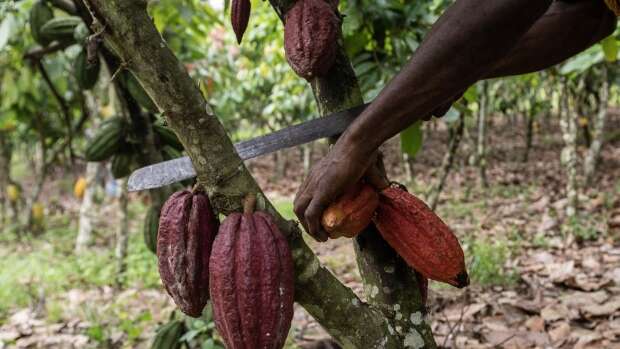Cocoa production at a tipping point
Over the past three years, Assanvo notes that there has been an increase in smuggling between borders with Ghana and Côte d’Ivoire. He urged leaders in the respective ECOWAS countries to take action to mitigate the issue.
With over half a century of volatility and a steady price decline, the cocoa industry has grappled with significant economic, environmental and social challenges.
The once prosperous cocoa economy has become a hardship for countless small-scale producers who cannot secure a decent income.
Recognising the dire need for change, Côte d’Ivoire and Ghana, powerhouses accounting for nearly 70% of the world’s cocoa production, have taken a bold step forward, establishing the Côte d’Ivoire-Ghana Cocoa Initiative (CIGCI) in 2018.
The CIGCI initiative aims to secure remunerative prices for cocoa farmers, thereby enhancing their livelihoods and advocating for the common interests of member countries on the global stage.
Speaking on Sunday Night on Asaase 99.5, Alex Arnaud Assanvo, the executive secretary of CIGCI, sheds light on the cocoa industry’s plight, revealing a landscape riddled with challenges yet ripe with opportunities for transformation.
History of cocoa production in West Africa
While cocoa originated in South America, cocoa production in West Africa started in the 1800s. The first large-scale production was in the 1880s from Portuguese plantations on the islands of São Tomé and Principe.
The venture into ‘black gold’ or cocoa production in Ghana was introduced in 1876 by Tetteh Quarshie, who gradually expanded crop cultivation. It spread from Mampong-Akwapim to other areas in the country.

Côte d’Ivoire started cocoa cultivation around the 1890s. It is now the world’s largest producer of cocoa. Formal cocoa production started in the 1970s and eventually spread across the country. Nevertheless, the expansion has left heavy deforestation, with over 80% of the country’s forests disappearing.
Challenges and Solutions of Cocoa Production: the CIGCI perspective
Price Volatility and Market Dynamics
A recurrent theme is the struggle of cocoa farmers with price volatility and the inability to earn a decent income. The European Union, being the primary importer of cocoa, has given the producing countries, mainly Ghana and Côte d’Ivoire, limited influence in price setting.
Assanvo noted that the implementation of the Living Income Differential (LID) “is a
newly priced mechanism… to secure the farm gate price that will go to the farmer.”
He emphasized that while the CIGCI is not creating trade rules with the LID, they want to focus on “where we have power.”
Environmental Sustainability
Deforestation is a critical issue for the producing countries Ghana and Côte d’Ivoire. The EU Deforestation Regulation (EUDR), set to come into force on 30 December 2024, will ensure that products such as cocoa they place on the market do not cause deforestation.
To mitigate deforestation, the CIGCI is developing a national traceability system in compliance with the EU legislation. This system will not only identify the origin of the buyer and the cocoa but also provide much-needed support to small-scale farmers.
Social Issues
Despite being a top cocoa producer, Côte d’Ivoire struggles with child and slave labour among cocoa farmers. An estimated 30% of children working on cocoa farms do not attend school.
Over the past three years, Assanvo notes that there has been an increase in smuggling between borders with Ghana and Côte d’Ivoire.
He urged leaders in the respective ECOWAS countries to take action to mitigate the issue.
The Road Ahead
Assanvo noted that Cameroon and Nigeria, who have expressed formal interest, will soon join the initiative.
He, however, stresses that there will need to be several internal processes for the membership to be translated in real time. He also mentions some countries, without specifying which ones, that have expressed informal interest.
Alex Arnaud Assanvo remains optimistic, viewing the current landscape as a critical opportunity for cocoa to emerge as a leading force for positive change in global agriculture.
Source:norvanreports


